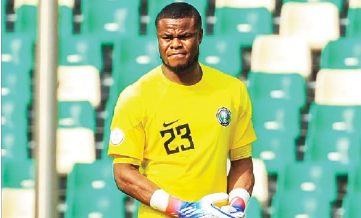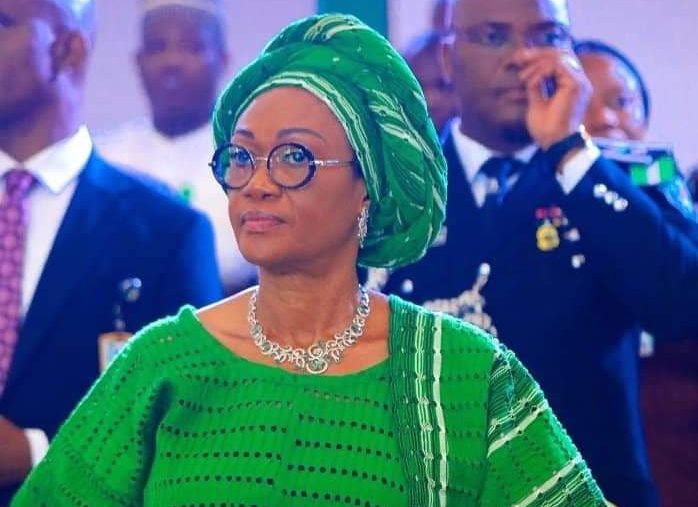The process that led to planned arraignment of the Chief Justice of Nigeria (CJN) Justice Walter Samuel Nkanu Onnoghen was concluded within four days, DailyPost reports.
At the weekend, information emerged that the President Muhammadu Buhari-led Federal Government has ordered the CJN to immediately vacate his office.
The government is said to, on Monday January 14, 2019, arraign him before the Justice Danladi Yakubu led-Code of Conduct Tribunal (CCT) in Abuja, on charges of failure to declare his assets as required by law and for operating Bank Domiciliary Foreign Currency Accounts.
On Saturday, our correspondent exclusively learnt of the timelines of the legal action against Onnoghen.
On Monday January 7, a petition was written by the Anti-Corruption and Research Based Data Initiative (ARDI);
On Tuesday January 8, the petition was submitted to the Code of Conduct Bureau (CCB);
On Wednesday January 9, the petition was stamped “received” by the office of the CCB chairman;
On Thursday January 10, charges against CJN Onnoghen were filed by the CCB;
On Friday January 11, the CJN was served at his official residence in Abuja.
Details of the petition, ARDI petitioned the Code of Conduct Bureau (CCB), listed a number of allegations, false declaration of assets, against Onnoghen.
The group said its petition, dated January 7, 2019, became necessary “bearing in mind the imminence of the 2019 General Elections and the overwhelming roles of the Judicial Arm both before and after”.
ARDI said Onnoghen “is the owner of sundry accounts primarily funded through cash deposits made by himself up to as recently as 10th August 2016 which appear to have been run in a manner inconsistent with financial transparency and the code of conduct for public officials”.
In the petition seen by TheCable, the group said Onnoghen made five different cash deposits of $10,000 each on March 8, 2011, into Standard Chartered Bank Account 1062650; two separate cash deposits of $5000 each followed by four cash deposits of $10,000 each on June 7, 2011; another set of five separate cash deposits of $10,000 each on June 27, 2011, and four more cash deposits of $10,000 each the following day.
They said Onnoghen did not declare his assets immediately after taking office, contrary to section 15 (1) of Code of Conduct Bureau and Tribunal Act; and that he did not comply with the constitutional requirement for public servants to declare their assets every four years during their career.
Also alleged against him is that his Code of Conduct Bureau Forms (Form CCB 1) for 2014 and 2016 were dated and filed on the same day and the acknowledgement slips were issued for both on December 14, 2016 — at which point, they said, Onnoghen had become the CJN. Onnoghen assumed office as CJN on March 6, 2017.
ARDI alleged that prior to 2016, Onnoghen appeared “to have suppressed or otherwise concealed the existence of these multiple domiciliary accounts owned by him, as well as the substantial cash balances in them”.
Account balances were listed as follows: The Standard Chartered Bank dollar account 1062650 with a balance of $391,401.28 on January 31, 2011;
The Standard Chartered Bank Euro account 5001062686 with a balance of EURO 49,971 .71 on January 31, 2011;
The Standard Chartered Bank pound sterling account 5001062679 with a balance of GBP23,409.66 on February 28, 2011;
“It is curious that these domiciliary accounts were not declared in one of the two CCB Forms filed by Justice Onnoghen on the same day, 14th December 2016,” the group said.
The Federal Government among others is accusing Nigeria’s Head of the Judiciary of refusal to declare his assets in breach of the provision of the Code of Conduct Bureau Act.
He is also being accused of maintaining Domiciliary foreign currencies account which comprised Dollars Account, Pound Sterling Account and Euro Account which are alleged to be contrary to relevant laws, especially for public office holders.
Justice Onnoghen, whose appointment suffered delay by President Muhammadu Buhari over undisclosed issues, may be the first CJN in Nigeria to be arraigned for criminal charges by the Federal Government.
A Senior Advocate of Nigeria (SAN) has been engaged by the Federal Government to prosecute Justice Onnoghen.
However, eminent lawyers have already volunteered to put their services at the disposal of the CJN.

 BIG STORY1 day ago
BIG STORY1 day ago
 BIG STORY1 day ago
BIG STORY1 day ago
 BIG STORY3 days ago
BIG STORY3 days ago
 BIG STORY5 days ago
BIG STORY5 days ago
 BIG STORY3 days ago
BIG STORY3 days ago
 BIG STORY19 hours ago
BIG STORY19 hours ago
 BIG STORY3 days ago
BIG STORY3 days ago
 BIG STORY16 hours ago
BIG STORY16 hours ago
























